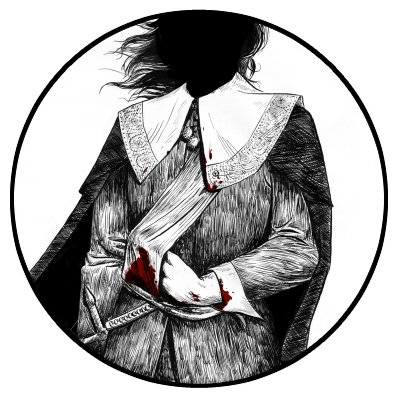Well, it’s NaNoWriMo again, bringing with it that siren song of consistency. If I could just write x amount a day…
This, after the multitude of -tober challenges, urges me to write about the false hope of consistency and dealing with the emotional aftermath of failing that consistency in a world which seems to think it’s the only way to write, to draw, or advance a creative skill.
After years of ignoring its call, I attempted a -tober drawing challenge this year. Vamptober, and since I’m already obsessed with the theme, I thought I could do it. It was a good way of getting myself back into drawing after a few horrible months of the worst RSI flare up I’ve ever experienced.

a pretty baller drawing of Dracula I did for day one, when hopes were still high
I managed 12 days of it—my birthday came and I spent it celebrating (and then resting from celebrating) instead of drawing. And then the prompts started piling up, and there was no way I was going to knock out three, then four, then five in a day.
I stopped after day 12. I might go back to it, but only when I want to. I am not an animal meant for consistency.
In fact, I think a lot of us creative types aren’t. Especially if we’re the intuition-, feelings- and inspiration-driven type and our desire to create is puppeted around by those unseen hands which appear and reappear in our lives at random.
This is why, if you’re one of these types, the -tober writing and drawing challenges, and especially NaNoWriMo can really shit on you and your creative spirit, especially if you are new to writing or drawing and desperately want to finally just get to grips with creating.
“If this is what I really want to do, why can’t I do it every day? It’s just an hour of drawing, it’s just 200 words, it’s just 500 words, I already have the outline done, I was able to sit down and write 3k in one go the other night, it’s just one sketch, the idea was already picked FOR ME, why can’t I just do this.”
I think it’s for the same reason that you don’t eat the same exact thing every single day. You don’t wear the same thing every day, you don’t live the same day every single day. That shit gets boring and it wears you out.
I don’t think, even if you are making a purposeful point to hone your skills, that you have to write or draw every single day.
This is a good video about how the “improve just a little bit every day” routine isn’t for everyone.
There are as many types of artists and writers out there as there are types of people. But because, I think, we like order, and we like the illusion of “just do these 10 steps to get to where you want to be” we completely ignore this fact and only see artists and writers lauded for their very consistent writing or drawing practices.
“I do a warm up drawing every day for an hour, then I get to my work.”
“I sit down at 11am after breakfast [which my wife made, and is cleaning up, before getting to all the housework all day] and just start writing until I have a full chapter. And I do this every single day, except maybe Saturdays or Sundays.”
“I write 200 words on the bus every day during my commute to work. Then I write another 300 waiting in meetings, another 200 on the bus coming home, and then a little bit more once the kids are in bed and my partner is watching TV.”
“I wake up at 5am every single day before the rest of the house for some peace and quiet and write 1000 words before breakfast.”
A lot of this sounds feasible, and it seems obvious why these authors might be successful. They show up every day and just do it!
And all of us (probably) have the physical ability to: write on our phone wherever we are, have a laptop out, get on the computer every day, wake up a bit earlier, stay up a bit later, shuffle routines around to carve out time to get that word processor open and ready for work.
But can we create every day?
If I force myself to create something every single day whether I want to or not, I will end up writing or drawing garbage at some point, which will make a bigger mess for me later than if I just skipped that day.
Also, looking at this shit I’ve made will depress the fuck out of me, and will not inspire me to do more of it. In fact, it will make me start resenting the whole thing. This might be what happens to you, too.
Here is the resentment process:
This is really fun! I can do this an hour a day → it’s fun for two or three days → you have a bad day and can’t get your dailies done → the bad feeling and the guilt over not getting it done if it’s “so easy” creeps in → this makes you want to avoid the project entirely and/or beat yourself up, turning the thing you love into a source of shame, frustration, or resentment.
If you’re working on building your skills and just aren’t feeling it that day, do you really want to sit down and watch yourself struggle with drawing something that doesn’t satisfy you again?
A daily practice is not the only way to increase your skills. To get better, you need to practice your medium a lot, but it’s a practice in volume not in consistency. 5 sketches a day for 10 days is fine, it sounds more feasible, but you can sit down in an afternoon and do 50 sketches and then not touch your sketchbook for a week. You will probably see more improvement in one session of 50 sketches than doing 5 kind of shitty sketches a day, especially if you’re blocking out a good amount of time and giving yourself time to focus on what your flaws are and how to improve them with each sketch.
You can power level like that—that’s how I work.
When it comes to my creative output, I don’t push myself to do anything daily. Even commission work I wait on until I’m in the right head space and have the energy and mental clarity to really pay proper attention and not do sloppy work that I’ll just have to fix later. Yes, my commissions all have deadlines–which a lot of clients are pretty lenient with–but I take my deadlines very seriously.
I always get my work done, even with the mode of “I’ll work on it when I feel ready for it.”
Working only when I feel ready for it helps maintain cycles of work and rest. You absolutely have to maintain cycles of work and rest. Especially rest. Refueling with fun and play is essential to maintaining a fun and playful mindset with your creative output as well.
“I’m just going to play around with this chapter and see what I can do with it. No worries if it’s not perfect, I can play around with it later when I have the energy again.” This is a healthy attitude towards writing (and editing) coming from someone that is prioritizing rest, play, joy and working with themselves instead of against themselves.
[Might you get tired of editing and re-editing the same chapter over and over? Is that what I’m currently facing with The Lord of Astiigos right now? Is the nth version of chapter one currently open in Scrivener, looming behind this document? YES! But do I feel a crushing self-loathing for my “inability to write” or whatever just because I am working on version like, 8 of a chapter? Nope. Is it the MOST fun thing in the world to edit yet again? Not really, but I’m not beating myself up about this. I am just going to play around and see what happens and if my new edits achieve what I’m looking for.]
“Dear god okay I need to get back to this chapter, fuck okay it’s really important and it has to be good and I just need to get it done I just need 500 good words today please can my brain just give me 500 good words.” This is an overly serious, usually very self-hating attitude towards your own creative output (one that is usually tied to self worth. “I must create good things to be good”, which is false. You are a human being not a singular creative skill you are still working on—for we are always working on our skill level, no matter how long we’ve been creating.) This mindset is dogmatic, it’s black and white, it’s forgotten that creativity is play—you’re supposed to be having FUN! It would probably help more to close the document and get some much needed rest or play in. Go load up the easiest, dumbest, goofiest, pure-candy video game you have until you remember how to have fun again. And then bring that energy back to your project.
[I understand this is difficult with depression. The curious and playful mindset towards creative output might need to be faked until it clicks in your brain. It can also help to ask yourself again why you’re writing what you’re writing—what makes you go crazy about it? Focusing on that can help push through, too.]
Remember the resentment process. It can turn a source of joy into one of frustration and shame and self loathing. Does that feel like what you experience? You’re not meant for these daily word counts/daily drawing challenge routines, then, which is fine. You can do this shit whenever you want. Forcing yourself to work on a creative project when you do not want to will make you burn out 10x faster.
So, remember: you do not have to create every day. Not to be a “real” artist or writer. Not either to reliably increase your skill.
The path towards finishing books, drawings, improving your writing or drawing skill is not constrained to the daily habit, and you are not a failure for not being able to do these challenges every day. Some people just don’t work that way. And that’s alright.
